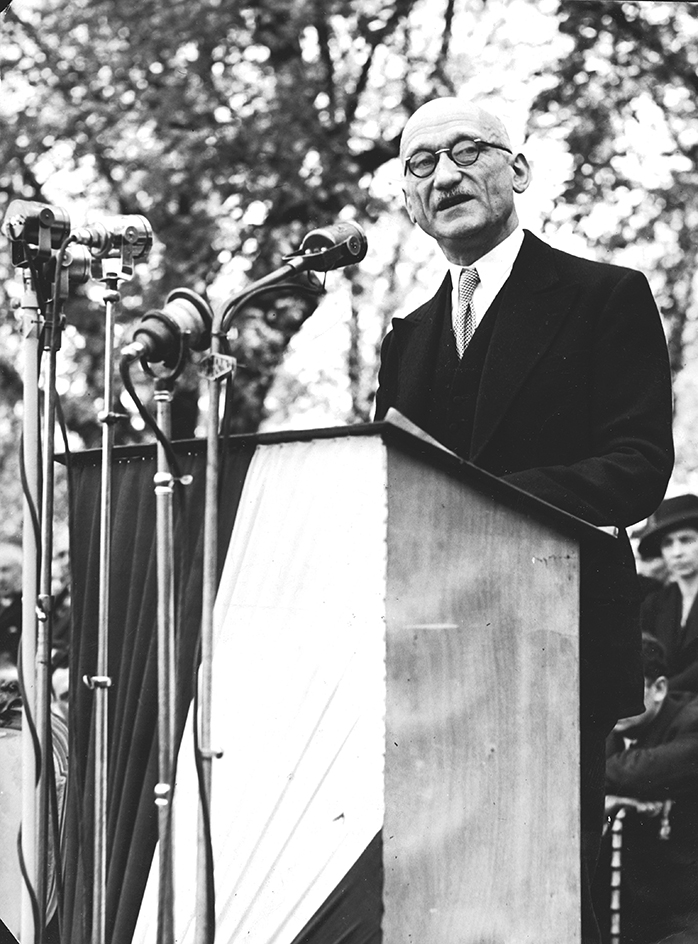Schuman, Robert (1886-1963), was a French political leader who served as prime minister and as a foreign minister after World War II (1939-1945). He is known as one of the founding fathers of the European Union (EU).

Robert Jean-Baptiste Nicolas Schuman was born on June 29, 1886, in Luxembourg. He grew up in the region of Alsace-Lorraine, then a territory of Germany. He studied law at the universities of Berlin, Bonn, Munich, and Strasbourg. After World War I (1914-1918), Alsace-Lorraine returned to French control. In 1919, Schuman entered politics and was elected to France’s National Assembly.
During World War II, Schuman was captured and held briefly by the Gestapo, the secret police force of Nazi Germany, when German forces occupied France. In 1942, he joined the French resistance movement that fought the Germans for France’s freedom.
In 1946, Schuman was reelected to France’s National Assembly as a member of the Christian Democratic Party. He held several government posts before serving as prime minister of France in 1947 and 1948. From 1948 to 1952, Schuman was a foreign minister for France.
With the French government official Jean Monnet, Schuman helped set in motion the process of European economic and political unification. On May 9, 1950, Schuman proposed an idea for improving relations between France and West Germany. According to this proposal, French and West German production of coal and steel would be placed under a common authority, within the framework of an association open to other democratic European nations. The Schuman Plan, as it became known, was the first step toward a federation of European countries. This plan led to the establishment of the European Coal and Steel Community (ECSC) in 1952. Today, May 9 is celebrated throughout the nations of the EU as Europe Day.
In 1957, the ECSC was followed by the European Economic Community (EEC), an organization that worked to combine the members’ economic resources. The ECSC and the EEC were two of the groups that merged to form the European Community, an economic association that was incorporated into the EU in 1993.
Schuman remained committed to the project of European integration throughout his life. He served as president of the European Movement, an association for European unification, from 1955 to 1961. From 1958 to 1960, he was president of the European Assembly, which later became the European Parliament.
Schuman received a number of honors for his contributions. The central square of the EU’s headquarters district in Brussels, Belgium, is named for him. He also won the Charlemagne Prize for the advancement of European unity in 1958. Schuman died on Sept. 4, 1963.
